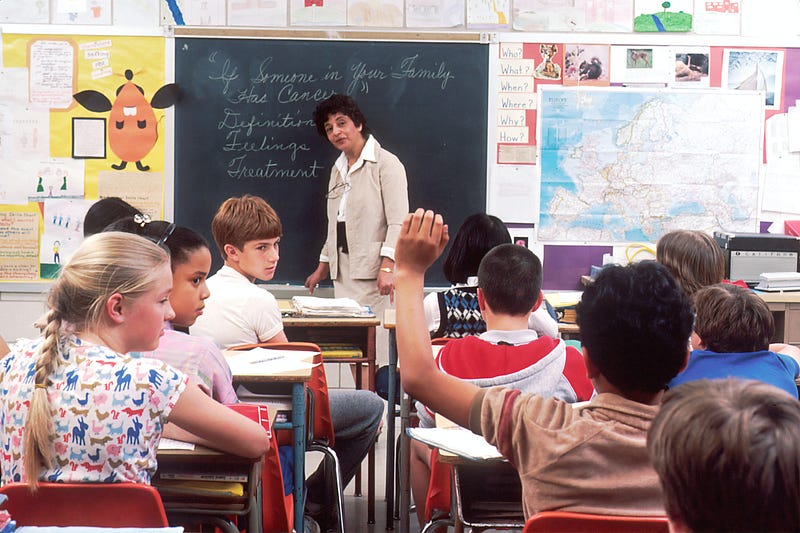Navigating Disagreements with Educators: A Student's Perspective
Written on
Understanding Disagreements in the Classroom
Handling disagreements with teachers is something many of us encounter. As an adult learner at a technical college, I find myself dedicating numerous hours each week to projects and general education courses. This time commitment doesn’t account for assignments, test preparations, or personal study for upcoming projects. During my time as a full-time student, I’ve faced various situations where I disagreed with instructors, whether it was regarding an assignment's grading or a point made in class. Having graduated from both a two-year and a four-year institution, I can confidently say that such disagreements are a common aspect of the college journey.
However, the critical factor lies in how we address these disagreements. From my perspective and experience, there is an appropriate way to handle these situations and an inappropriate one.
Self-Reflection Before Engaging
Before confronting any disagreement, I must engage in some self-reflection. Did I arrive to class early, or did I come in at my convenience? Did I put in the effort to complete all required assignments, or did I selectively choose tasks to ensure an easy grade? Did I prepare for class, or did I disengage because I felt the subject was unimportant? Did I attempt to respond to the instructor's questions, or did I hide in hopes of not being called upon? Did I utilize the extra resources offered by the teacher to enhance my understanding, or did I refuse to engage and then claim confusion? The answers to these questions can lend credibility to my disagreement if I am actively participating in my education.
Assessing the Purpose of My Disagreement
What drives my disagreement? Is it to assist fellow students who might share similar questions? Is my aim to clarify a point? Am I hoping to help the teacher improve their approach for future classes? Or is it simply a matter of my own ego feeling bruised, akin to the comfort of snuggling a feral cat?
Evidence to Support My Position
Do I have the necessary evidence to back up my disagreement? Was the question ambiguous enough that multiple answers could apply? Can I reference a textbook or my notes to substantiate my claims?
Accepting the Outcome
Can I accept the instructor's decision if they determine my disagreement lacks merit? Will I be able to accept this and move forward without resorting to actions that could jeopardize my standing in the class?
Avoiding Groupthink
Will I be swayed by a "mob mentality" if my classmates express dissatisfaction? If the class begins to voice grievances, will I contribute to the unrest, only to find the teacher addressing me directly, frustrated and disappointed?
Moving Forward
Ultimately, can I move on from the situation? It’s crucial to ask myself this question. As students, we strive to excel, and the goal of attending college is to graduate and progress to the next chapter of our lives, rather than engaging in petty disputes.
Thank you for allowing me to share my thoughts.

Chapter 1: The Importance of Effective Communication
Effective communication is key when addressing disagreements.
This video discusses strategies for resolving conflicts among educators and offers insights from viewers.
Chapter 2: Strategies for Managing Conflict
The importance of maintaining wellness while managing disagreements is crucial for both students and teachers.
This video provides tips for teachers on managing conflict effectively while prioritizing their well-being.